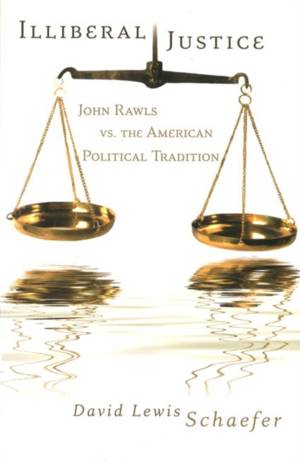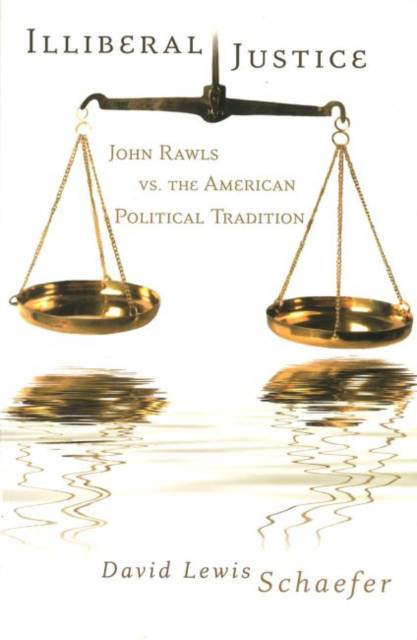
- Retrait gratuit dans votre magasin Club
- 7.000.000 titres dans notre catalogue
- Payer en toute sécurité
- Toujours un magasin près de chez vous
- Retrait gratuit dans votre magasin Club
- 7.000.0000 titres dans notre catalogue
- Payer en toute sécurité
- Toujours un magasin près de chez vous
Illiberal Justice
John Rawls vs. the American Political Tradition Volume 1
David Lewis Schaefer
Livre relié | Anglais
97,95 €
+ 195 points
Format
Description
Often considered the greatest American political philosopher of the twentieth century, and the most important liberal theorist since John Stuart Mill, John Rawls enjoys a practically sacrosanct status among scholars of political theory, law, and ethics. In Illiberal Justice, David Schaefer offers the most thorough challenge to Rawls's doctrine yet published, demonstrating how his teachings deviate from the core tradition of constitutional liberalism as exemplified by leading American statesmen from the founders through Lincoln and beyond.Illiberal Justice is the first comprehensive overview of all of Rawls's writings, emphasizing the continuity in his thought and intention to a greater extent than other scholars have done. Schaefer offers a fundamental critique of both Rawls's conception of political philosophy and the policy judgments he derives from his "principles of justice." Schaefer argues that Rawls's failure to ground his teaching about justice in a serious analysis of human nature or an empirical grasp of political life is symptomatic of a larger crisis within contemporary liberal political and jurisprudential theorizing.Although Rawls is commonly viewed as a welfare-state liberal, Schaefer stresses that his writings actually embody a radical transformation of liberalism in the direction of libertarianism that deviates sharply from the American liberal tradition. Citing empirical evidence of the persistence of political and economic opportunity in America, Schaefer challenges Rawls's allegations that our polity suffers from grave injustices. He points out the strikingly apocalyptic tone of Rawls's last writings, in which Rawls even questions whether human existence is worthwhile if his principles are not actualized.Illiberal Justice is not only a critique of Rawls's political program and philosophic methodology, it is also a defense of the American constitutional order against Rawls's dogmatic theorizing, which Schaefer argues has exercised an increasing, and detrimental, effect on our jurisprudence. By combining a thorough critical exegesis of Rawls's texts with a broad engagement with the tradition of political philosophy and American political thought, Schaefer makes an important contribution to both our understanding of Rawls and the enterprise of political philosophy.
Spécifications
Parties prenantes
- Auteur(s) :
- Editeur:
Contenu
- Nombre de pages :
- 384
- Langue:
- Anglais
Caractéristiques
- EAN:
- 9780826216847
- Date de parution :
- 01-01-07
- Format:
- Livre relié
- Format numérique:
- Genaaid
- Dimensions :
- 165 mm x 235 mm
- Poids :
- 662 g

Les avis
Nous publions uniquement les avis qui respectent les conditions requises. Consultez nos conditions pour les avis.






